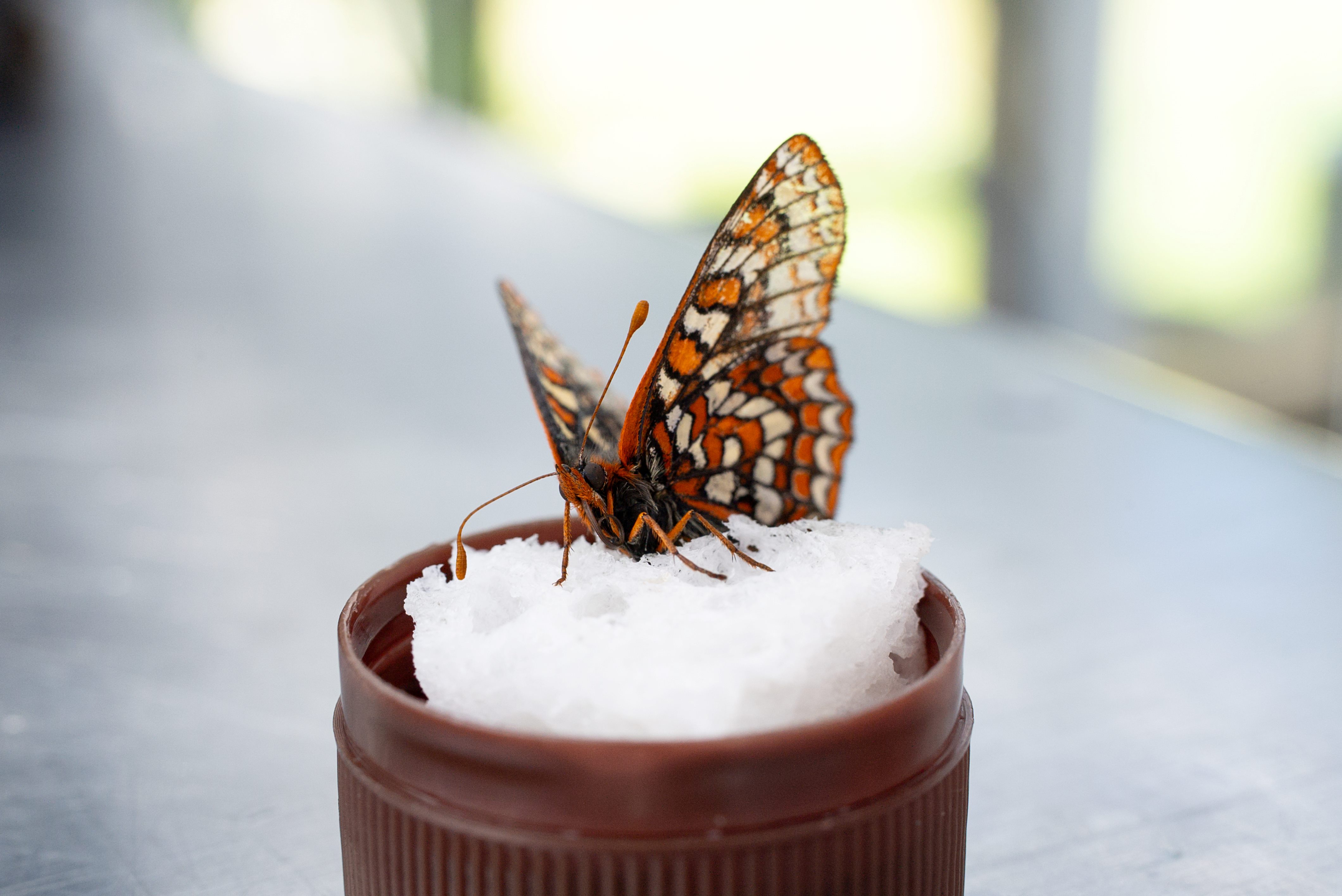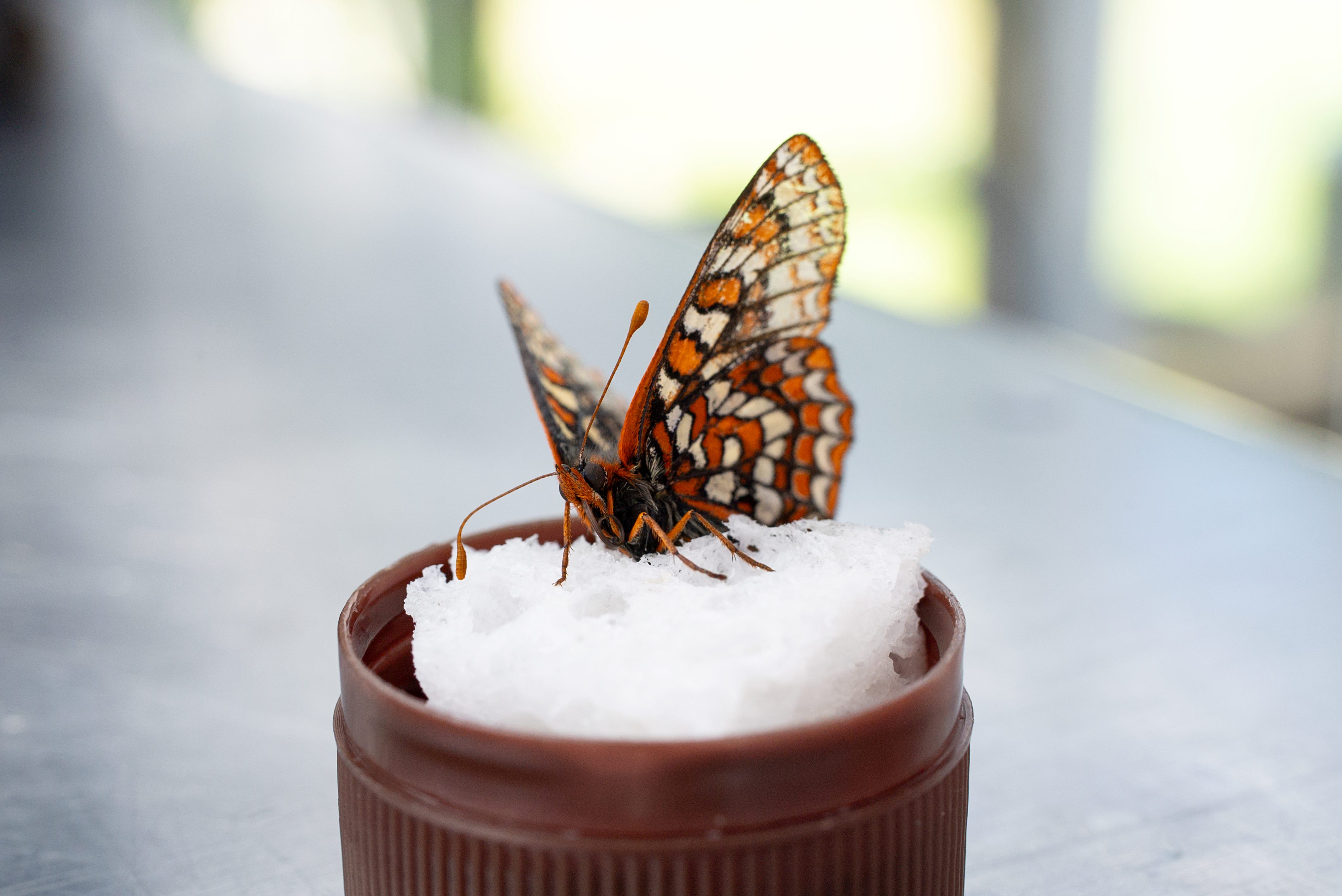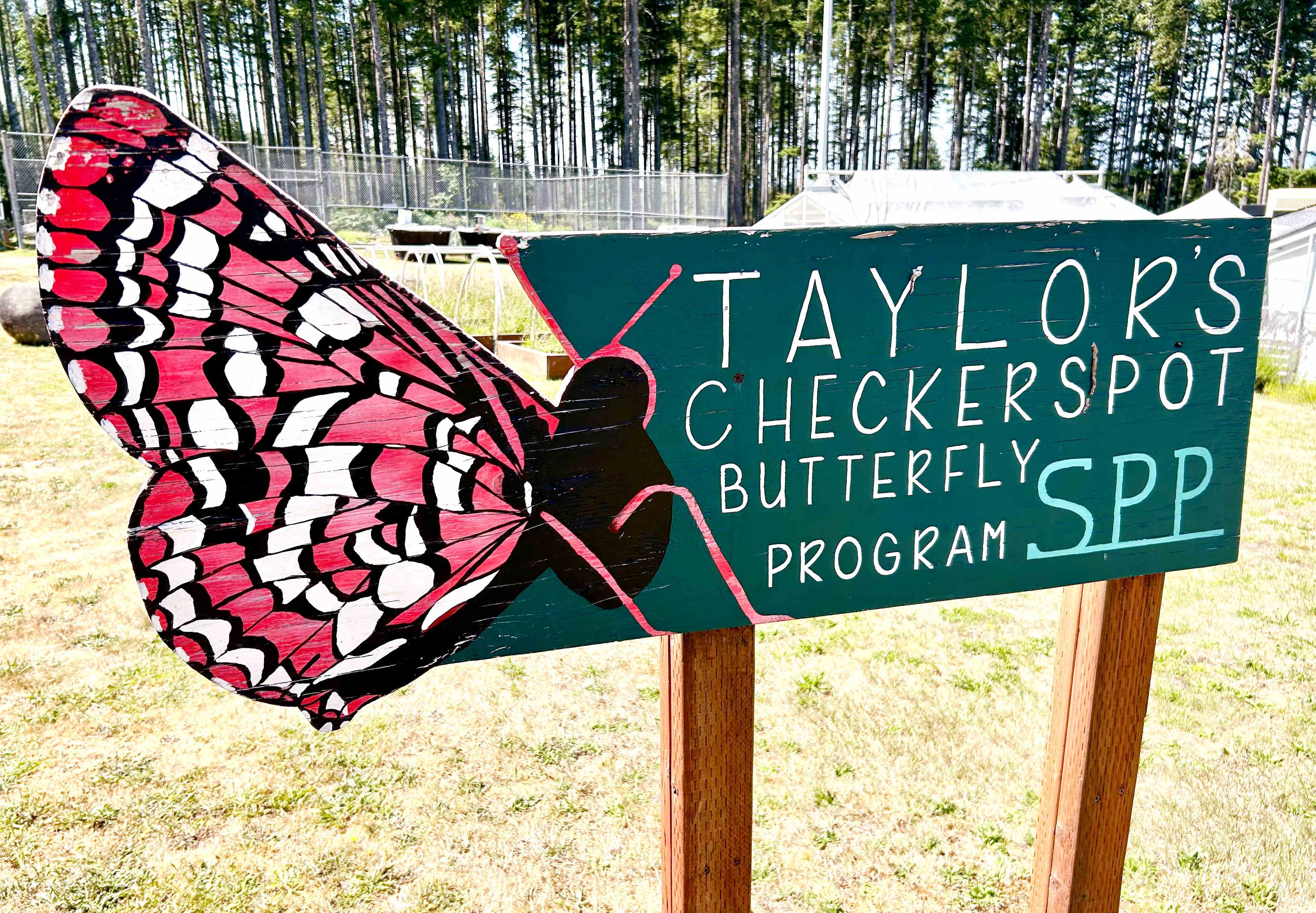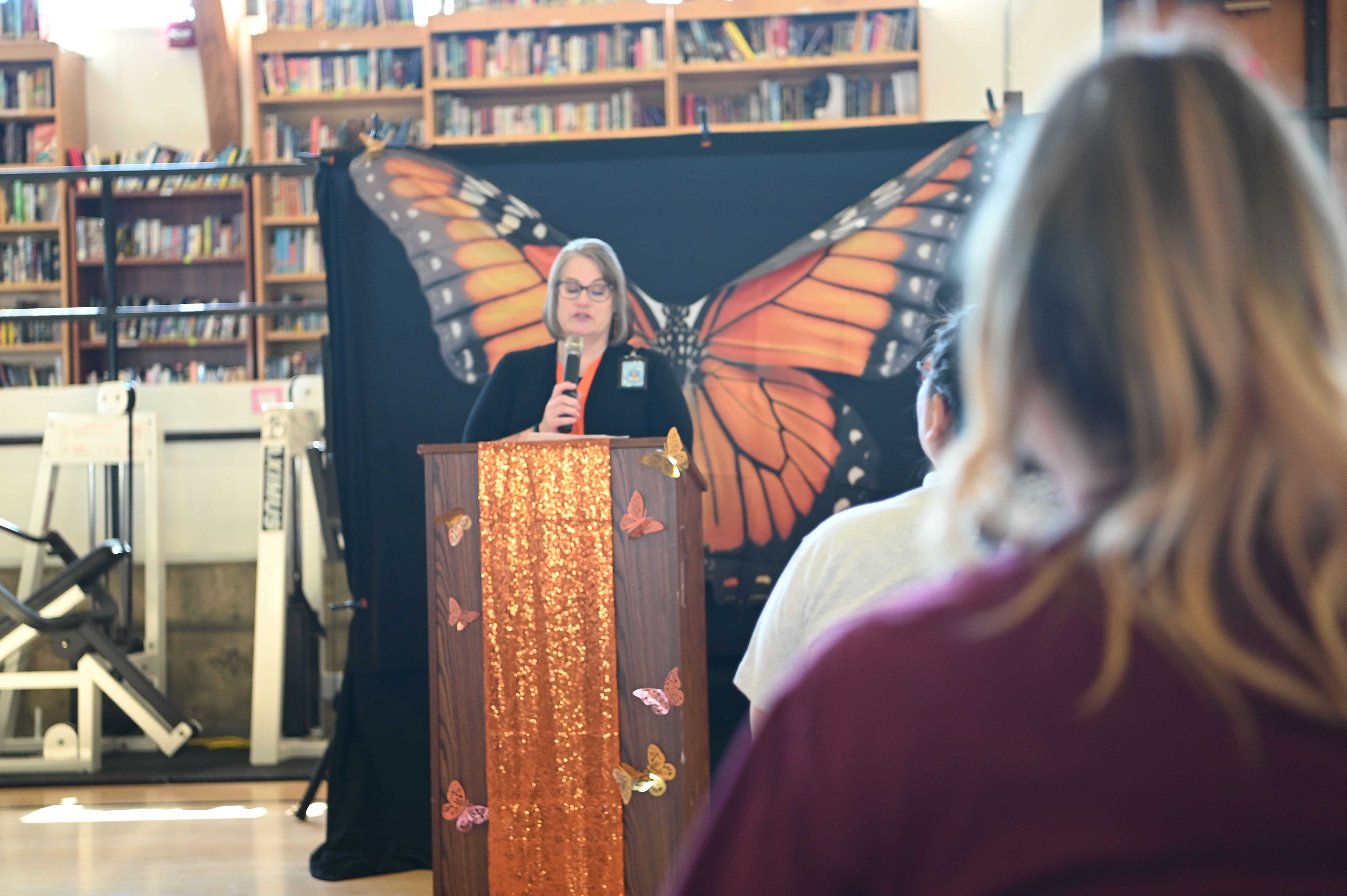
A Taylor’s checkerspot butterfly sitting on a small sponge, soaked in sugar water.
BELFAIR — Wearing a yellow flower crown and an orange-and-black-striped butterfly wing cape, Kennie Calvert beamed as she accepted a certificate for her work helping to save an endangered species — from inside a prison.
For two years, Calvert served as a butterfly technician at Mission Creek Corrections Center for Women (MCCCW). She is one of several incarcerated individuals trained to raise Taylor’s checkerspot butterflies — a once-common species in the Pacific Northwest—that’s now endangered.
“I’m a nature girl at heart,” said Calvert, who completed her service as a butterfly technician in December of 2024. “Whoever thought you’d go to prison and become a butterfly technician and help prevent the extinction of a species? We’re saving the world, one butterfly at a time.”
The program is part of a longstanding partnership between the Washington State Department of Corrections and The Evergreen State College’s Sustainability in Prisons Project, SPP. SPP develops and delivers science and environmental sustainability programs in each of the state’s 11 prisons.
The once endemic Taylor’s checkerspot butterfly has seen steep declines due to loss of the prairie-oak ecosystems, habitat degradation from urban development and invasive species, according to the Washington Department of Fish & Wildlife. The species, which was once documented at more than 70 in British Columbia, Washington and Oregon, now only inhabit a single population in British Columbia, two in Oregon and eight in Washington.
The fight to save the species is something in which the women at MCCCW have taken an active role. The women carefully rear the fragile insects from egg to adulthood. They collect butterfly eggs, check temperature and humidity in a greenhouse lab, and gently place larvae on host plants to mimic natural conditions. Most of the caterpillars are released into protected prairie habitats across south Puget Sound and parts of the Olympic Peninsula to help restore the wild population. The rest remain in the lab through adulthood for breeding.
Calvert and the other butterfly technicians were recognized at a ceremony in July celebrating the butterfly-rearing program’s 13-year run. The butterfly program is one of the last remaining operating programs at the prison, which is scheduled to close this fall. The DOC is closing the prison as a cost-saving measure in light of a statewide budget shortfall that has forced agencies across the board to make reductions.
The incarcerated women at MCCW will be transferred to the Washinton Corrections Center for Women (WCCW) Pierce County. And so, too, will be the butterfly program, according to SPP Director, Kelli Bush. She said the existing horticulture and gardening programs at WCCW will grow various types of prairie plantain that serve as a habitat and food source for the butterflies.
“I know that change is in the air and that we’re about to shift,” Bush said. “But what gives me hope and comfort when I start to feel nervous about change is the amount of dedication to this work from all folks who are involved in all areas of this partnership. I’m confident that we will be able to continue this program and the legacy that has been here at Mission Creek will be built upon into the future.”
Milestones
Since the program began in 2012, a total of 68 incarcerated women served in the program as butterfly technicians. They’ve raised more than 75,000 larvae that have been released onto Salish lowland prairie. To date in 2025, program officials had released 300 adult butterflies raised at MCCCW into the wild. By the end of May, the incarcerated women in the program had cared for more than 12,000 eggs—more than any other year. In June, program partners released 6,000 butterfly larvae into native habitat.
In 2022, SPP and The Evergreen State College launched a new SPP “Prior Learning Experience Model,” which allows incarcerated students to earn college credit through their accomplishments and skill development in prison programs. SPP currently has seven credit eligible programs, which includes MCCCW’s butterfly rearing program. In 2024, 11 women received college credits from Evergreen.
Making the World a Better Place
DOC staff, partnering organizations and members of the scientific community offered words of appreciation for the incarcerated women at the event.
Dan Grosboll, a biologist with the US Department of Fish and Wildlife, said the number of eggs and larvae and adult butterflies reared at Mission Creek consistently grew over the years because of the constant attention they received from the butterfly technicians.
“The reason it (the butterfly program) works is love,” Grosboll said. “We have new populations on the landscape and the species is more secure and less likely to go extinct in the future. These people are dedicated to these tiny little creatures and they work together across hard boundaries and show what it means to be a human in a world that cares. Recounting all the statistics of how many thousands (of butterflies) have been raised is irrelevant. What made it happen is love.”
Correctional specialist Judy Patton was moved to tears as she addressed the crowd. “The program does wonderful things with your lives and you are the ones that did the work,” Patton said. “You are the heart of the program. You made this program good. It wasn’t about anybody else; it was about you and what you were going to do with your life to become successful, happy productive citizens in our world.”
Calvert says she is excited to become one of those citizens. Her release date is in 2029 and says she wants to attend the Evergreen State College and work or volunteer in the environmental conservation field.
“It’s really opened my eyes," Calvert said. “We didn’t inherit this earth from our people, we’re renting it from our children and we need to give it them in a better way than we found it.”








